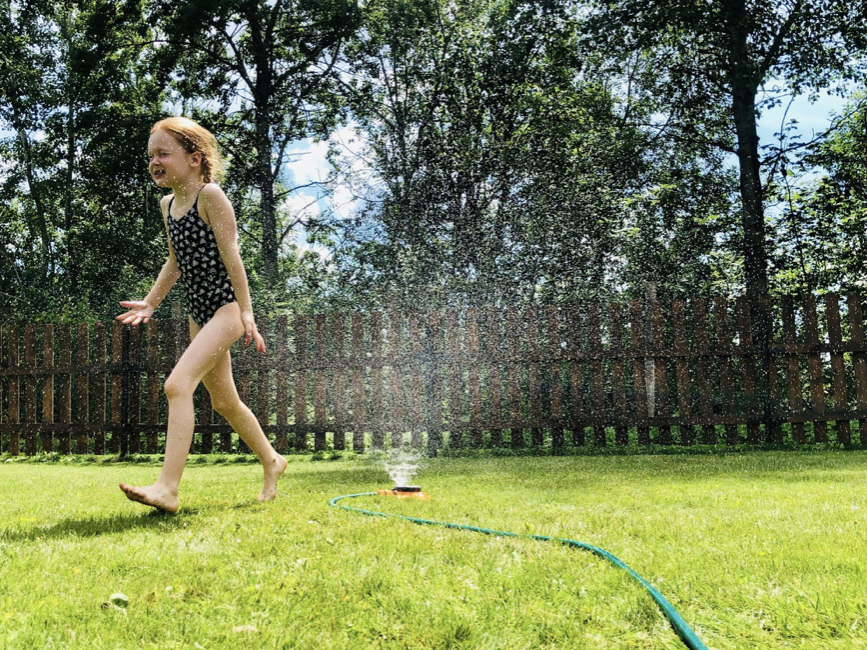10 Kid-Friendly Activities That Promote Self-Care

Self-care has become widely accepted as a necessity rather than a luxury. Practices that focus on your well-being help you to manage stressors and lead a happy and fulfilling life. Like adults, kids deal with many demands and worries each day. The child specialists at CDA Class want to show you some fun and simple ways to help your child learn self-care practices. 10 Kid-friendly activities that promote self-care are here.
Why Kids Need Self-Care
Children of all ages are learning about themselves and the world around them. Self-care practices teach them to recognize and prioritize their physical, mental, and emotional needs.
The benefits of instilling the concept of self-care from a young age are numerous. Self-care:
- Prepares children to effectively manage stress
- Increases self-awareness
- Promotes wellness
- Enables kids to develop and maintain positive relationships
- Reduces the risk of mental health conditions such as anxiety and depression
- Teaches essential self-regulation skills
- Sets a healthy foundation for adulthood
How Parents Can Teach Self-Care
The best way to teach self-care is to model it by making your own practices visible to your children. You can even invite them to participate. The earlier you start, the more likely it is that self-care will become a natural part of your children’s lives.
Activities That Encourage Self-Care
Self-care can be tailored to match the age, developmental level, interests, and temperament of each child. Some practices are better for solo time and others can be done together. Let the following ideas serve as a springboard for finding what works best for your family. Here are 10 Kid-friendly activities that promote self-care:
1. Tap Into Your Creativity
Many forms of creativity — painting, singing, gardening, etc. — provide children with an outlet to work through emotions. When life feels overwhelming, creative activities can help kids destress.
2. Start a Gratitude Journal
Gratitude journals help anchor kids to the present and develop a growth mindset. An attitude of gratitude leads to increased resilience and greater happiness.
3. Unplug
All kids need to disconnect from devices each day. You will inevitably receive pushback, but screen-free time inspires children to seek healthier alternatives to recreation. It can also help them to get better sleep at night.
4. Soak Up Nature
Research attests to the benefits of outdoor play. Besides vitamin D and fresh air, being outside gives children opportunities to take healthy risks and to learn about and develop an appreciation for the environment. If your yard isn’t looking its best at the moment, consider hiring an expert. Look online for “aerator near me” to find someone who is able to dethatch, aerate, and feed your lawn so it will be a lush, thriving ecosystem for your child to explore. Remember to read through reviews before calling out a few companies for quotes.
5. Give Back to Others
Getting involved in the community helps children to feel a sense of belonging and realize that they can make a difference. Children feel good about themselves when they help others.
6. Tidy Up Together
Your environment can be an outward expression of your inner feelings. Collaborate with your children to clean and declutter to create a more positive, healing, and healthy atmosphere at home. Plus, learning how to organize and say goodbye to unnecessary items will help them be happier and healthier as they get older.
7. Use Positive Self-Talk
When you model self-compassion, your children will have an easier time recognizing their own self-worth and learning from their mistakes.
8. Channel Your Inner Chef
Kids are more likely to develop healthy eating habits when they take an active role in preparing their food. Help them make a mess along with tons of positive memories. Look online for kid-friendly tools that can make the kitchen a safe space for your child to learn. Step stools are a safer way to give kids a boost without standing on an unstable chair. Check out reviews before committing to one, and don’t forget to look around for deals, too!
9. Establish a Bedtime Routine
Children thrive on the stability that routines provide. A consistent bedtime routine enables children to decompress and establish good-quality sleep patterns.
10. Save Room for Silly
Laughter is the best medicine. Consider silliness your daily dose. Honor the innocence and fun of childhood with a good knock-knock joke or an all-out pillow fight.
It’s never too early or too late to teach your children the importance of self-care. Plus, it’s good encouragement for you to take care of your mental and physical needs, too. Modeling is the best form of teaching, so be active in your self-care practices. It will make you a happier parent, and your future self-sufficient adult children will thank you.
We hope our 10 Kid-friendly activities that promote self-care will help you on your journey as a parent.
Would you like to learn more about how your child’s body and brain develops so that you can help them at each stage of their life? If so, consider taking a Child Development Associate class from CDA Class. Getting this certification can help you be a more informed parent or get a job working with children in a group setting, like a daycare or preschool. Visit their website to learn more.
Brad Krause graduated from college in 2010 and went straight to the corporate world at the headquarters of a popular retail company. But what started as a dream job soured quickly. After four years of working 15-hour days and neglecting his health, he decided enough was enough. Through aiding a friend during a tough time, Brad discovered his real calling-helping people implement self-care practices that improve their overall wellbeing. He created Self Caring to share his own knowledge and the many great resources he finds on his self-care journey.
